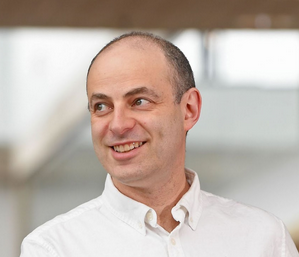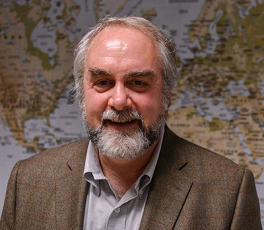Speakers
27 May 2025

Sageev Oore is a faculty member in Computer Science at Dalhousie University, an Affiliate Faculty Member at the Vector Institute for Artificial Intelligence, and a professional musician. Sageev works on fundamental deep learning research, particularly in relation to audio, music, computational creativity, mental health, and robustness. He works with clinicians to track depression severity through speech acoustics. He has held roles including Research Faculty Member at the Vector Institute, Canada CIFAR AI Chair, and Visiting Research Scientist at Google. His work has received awards and nominations at NeurIPS, AAAI, and CVPR. Sageev is grateful to collaborate with the wonderful graduate students in his lab, who make things work. Alongside his scientific pursuits, Sageev is a multiple award-winning musician. He has performed with orchestras as a classical soloist (e.g. Mozart, Chopin, Rachmaninoff concerti) and as an improviser. He has played with hundreds of musicians, at jazz festivals across the country, and collaborates in art and research (in different & fun proportions) with his siblings—Daniel, Jasmine, and Jonathan. He completed his undergraduate degree in Math (Dalhousie), MSc and PhD in Computer Science (University of Toronto) with Geoffrey Hinton, and studied piano with music teachers affiliated with Dalhousie, Juilliard, York, and UBC.
28 May 2025

Nathalie Japkowicz is a professor in the Computer Science Department at American University, which she chaired from July 2018 to June 2024. Prior to that, she directed the Laboratory for Research on Machine Learning applied to Defense and Security at the University of Ottawa in Canada. She is a Professor and AI/Machine Learning researcher particularly interested in lifelong machine learning, anomaly detection, hate speech monitoring, machine learning evaluation, and the handling of uncharacteristic data including datasets plagued by class imbalances. She trained over 30 graduate students. Her research has been funded by American University’s Signature Research Initiative, DARPA’s L2M program, NSERC, DRDC, Health Canada, and various private companies. Her publications include Evaluating Learning Algorithms: A Classification Perspective at Cambridge University Press (2011), an edited book in the Springer Series on Big Data (2016), and over 150 book chapters, journal articles, and conference or workshop papers. Her recent co-authored book entitled Machine Learning Evaluation: Towards Reliable and Responsible AI at Cambridge University Press appeared in November 2024. She received five best paper awards, including the prestigious European Conference on Machine Learning 2014 Test of Time award, and was awarded the Canadian Artificial Intelligence Association Distinguished Service Award in 2021.
29 May 2025

Dr. Geoffrey Martin Rockwell is a Professor of Philosophy and Digital Humanities at the University of Alberta. He presently holds a Canada CIFAR AI Chair at the Alberta Machine Intelligence Institute. He has a Ph.D. in Philosophy from the University of Toronto and has published on subjects such as artificial intelligence and ethics, philosophical dialogue, textual visualization and analysis, digital humanities, instructional technology, computer games and multimedia. His books include Defining Dialogue: From Socrates to the Internet (Humanity Books, 2003) and Hermeneutica, co-authored with Stéfan Sinclair (MIT Press, 2016). Hermeneutica is part of a hybrid text and tool project with Voyant Tools (voyant-tools.org), an award-winning suite of analytical tools. He recently co-edited Right Research: Modelling Sustainable Research Practices in the Anthropocene (Open Book Publishers, 2021) and On Making in the Digital Humanities (UCL Press, 2023).



